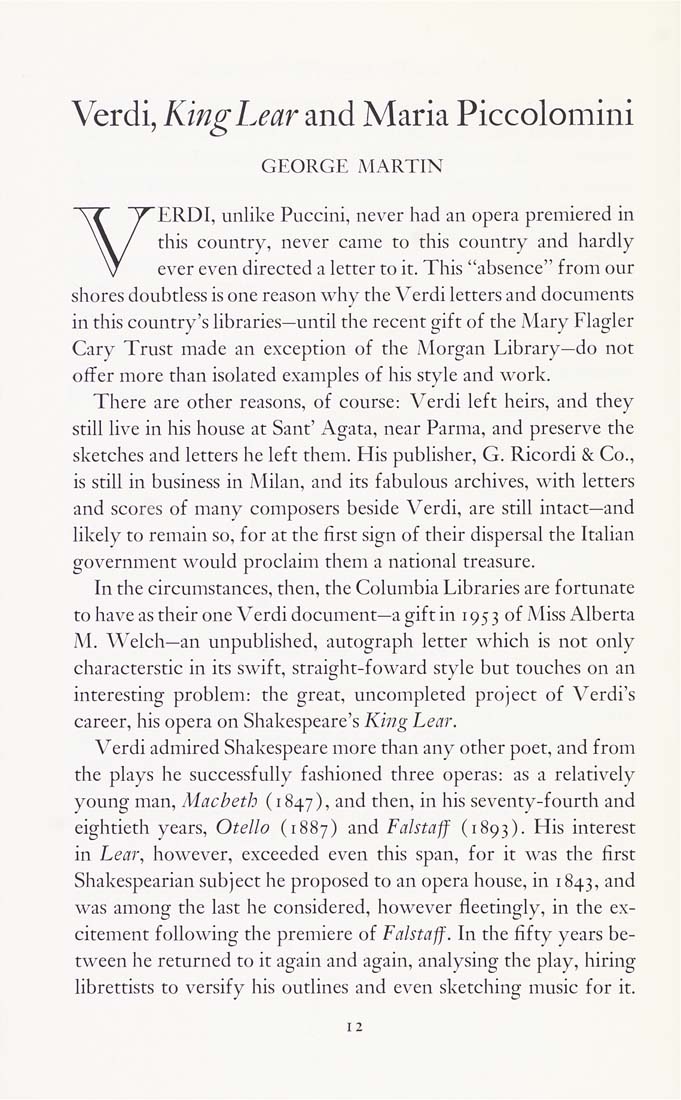Columbia Library columns (v.21(1971Nov-1972May))
(New York : Friends of the Columbia Libraries. )
|
||
|
|
|
|
| v.21,no.1(1971:Nov): Page 12 |

Verdi, King Lear and Maria Piccolomini GEORGE MARTIN VERDI, unlike Puccini, never had an opera premiered in this country, never came to this country and hardly ever even directed a letter to it. This "absence" from our shores doubtless is one reason why the Verdi letters and documents in this country's libraries—until the recent gift of the Mary Flagler Gary Trust made an exception of the Aforgan Library—do not offer more than isolated examples of his style and work. There are other reasons, of course: Verdi left heirs, and they still live in his house at Sant' Agata, near Parma, and preserve the sketches and letters he left them. His publisher, G. Ricordi & Co., is still in business in Milan, and its fabulous archives, with letters and scores of many composers beside Verdi, are still intact—and likely to remain so, for at the first sign of their dispersal the Italian government would proclaim them a national treasure. In the circumstances, then, the Columbia Libraries are fortunate to have as their one Verdi document—a gift in 195 3 of Miss Alberta M. Welch—an unpublished, autograph letter which is not only characterstic in its swift, straight-foward style but touches on an interesting problem: the great, uncompleted project of Verdi's career, his opera on Shakespeare's King Lear. Verdi admired Shakespeare more than any other poet, and from the plays he successfully fashioned three operas: as a relatively young man, Macbeth (1847), and then, in his seventy-fourth and eightieth years, Otello (1887) and Falstaff (1893). His interest in Lear, however, exceeded even this span, for it was the first Shakespearian subject he proposed to an opera house, in 1843, and was among the last he considered, however fleetingly, in the ex¬ citement following the premiere of Falstaff. In the fifty years be¬ tween he returned to it again and again, analysing the play, hiring librettists to versify his outlines and even sketching music for it. |
| v.21,no.1(1971:Nov): Page 12 |







